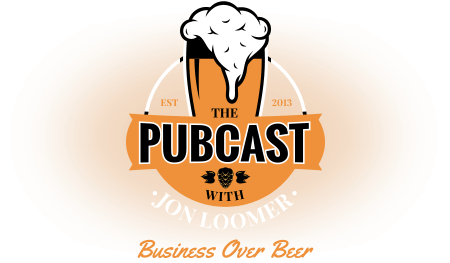Yesterday, a weird thing happened. A post that I wrote on LinkedIn about Meta pulling the plug on Facebook Podcasts was picked up by LinkedIn News. The result was a whole bunch of comments.

Look, I get there’s a weird dynamic on LinkedIn. People want to voice their opinions and showcase their professional knowledge. And maybe that’s not all that different than anywhere else.
I’m guessing that many or most of the comments I was getting were from people who don’t typically follow me and weren’t particularly informed on what the Facebook Podcasting feature was in the first place. And it showed.
But, it certainly felt like there were themes of comments I was getting, and they far outnumbered those that seemed to reflect a knowledge of what this feature actually was.
And truthfully, that shouldn’t be that big of a surprise. Facebook Podcasts were a limited test in the US. Most people probably never saw or used the feature. Why would the typical person — or even marketer — know how it worked?
So, I wanted to address the primary themes of comments I was getting. My hope is to help clarify what this actually means in each case.
Meta is Screwing Over Small Businesses!
Meta tested out Facebook Podcasts for 10 months. We can assume that the adoption, engagement, or both were underwhelming. As a result, Meta is refocusing resources elsewhere.
Does Meta have a reputation for favoring big businesses and big spenders? Sure! Can you say that about a long list of companies that make a whole lot of money? Absolutely! In order for Meta to be profitable, they focus on where they can make money. SMBs may absolutely be deprioritized as a result.
But… While that may be true, is this evidence of that? I don’t see it.
Meta tested a product that likely would have been used mostly by entrepreneurs and SMBs. Surely, it could have been leveraged by big media as well. I just can’t imagine many businesses were relying on Facebook Podcasts at this stage.
I was disappointed to see this go away. Was I screwed over? No way. And I’d be surprised if there are any or many examples of SMBs who relied so heavily on this product that they’re now going to suffer.
Facebook Podcasting never gained traction. If you managed to gain traction with it, you undoubtedly already have a big audience elsewhere.
Where Are You Going to Go Now, Jon?
I received a lot of questions like this. People wondering where I’m going to go now. Or asking why I “chose” Facebook Podcasts over something like Apple Podcasts or Spotify.
This suggests a basic misunderstanding of how the feature worked. No one (as far as I know) was generating unique podcast content for Facebook. You simply connected your show’s RSS feed to your page so that when you published a new episode through your host, it would publish to Facebook.
But, it would publish elsewhere as well. I don’t understand how or why you’d go to the trouble of setting up podcast hosting only to have that feed go to Facebook. You’d undoubtedly also send it to Apple Podcasts, Spotify, Stitcher, and the dozens and dozens of other places, too (some you need to intentionally set up, some you don’t).
Facebook was simply one of the destinations my podcast went to when it was published. There isn’t a replacement since I’m already publishing everywhere else I can.
Surely, if you weren’t doing that, you should. But, that’s less about Facebook screwing you over and more about you making sure your podcast is set up to get the greatest possible reach.
Rented Land!
Oooooh boy. This one is going to require an entire blog post. But let me get it started here.
A bunch of people used this news as proof of why you don’t build a house (your business) on rented land. Because it can be pulled out from beneath you.
Honestly, I feel that this expression needs to be retired. Sure, no one should ever build a business that relies 100% on Facebook. If everything you did was on Facebook and you never sent people to something you own, you’re a fool. And if that’s what people mean by the “rented land” expression, fine. But that has nothing to do with what’s happening here.
If you have a podcast, guess what? You need rented land to find listeners! You could certainly just publish it and feature it on your website (I do that!). But, if you actually want to reach people, you’ll also want to send it to the dozens and dozens of “rented land” that you don’t own.
Businesses need rented land. We need to leverage it to engage with and find our potential customers. Those potential customers want to hang out on rented land (like Facebook, Instagram, LinkedIn, YouTube, and TikTok). They do not want to hang out in our own homes.
Once again, the “rented land” comments certainly had some truth to them, but they made no sense in this context. For a podcast to thrive, you need to leverage rented land! If you don’t, you’re straight-up complacent.
CENSORSHIP!
Okay, this one wasn’t a common theme, but I saw it and it made me want to shut off all devices for the day.
The claim was that Meta making the decision to shut down Facebook Podcasts was evidence of censorship and opposed freedom of speech.
I hope that I don’t need to explain why this is a bunch of nonsense. Meta can make business decisions and turn off features because they may not be profitable without it being considered censorship.
Ugh. We just seem so wired to immediately jump to these types of extreme statements, it’s scary sometimes.
Your Turn
Okay, now that I’ve provided a counter to all of these statements, fire away. What are your thoughts on Meta shutting down Facebook Podcasts?
Let me know in the comments below!







